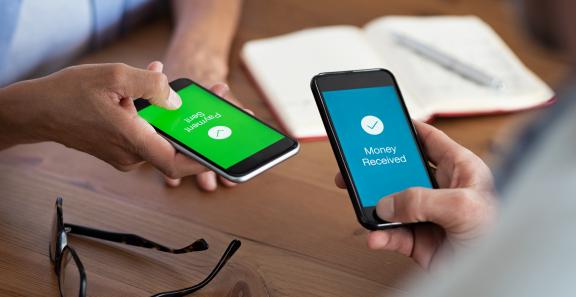Using Peer-to-Peer Payments More Safely

Posted: July 12 2019
Peer-to-Peer (P2P) payment services (PayPal, Venmo) enable you to easily send, receive or request payments to or from others. Originally intended for small payments between people who know each other (splitting a restaurant bill, sending gifts, paying a babysitter), P2P payments have expanded to new contexts—bringing added risk. However, there are a number of things you can do to reduce that risk.
Get Notifications
Make sure that you set up your P2P payment service to notify you (app notification, email, text) any time there’s a transaction on your account.
Deal With Those You Trust
Avoid making transactions with people or companies you don’t know. If you’re selling something, the buyer could cancel the payment after receiving the item, but before the money is taken out of their account.
Consider Using a Bank-Sponsored Service
While in a bank or a federal credit union, your money will be protected by federal deposit insurance. If you're using a non-bank P2P service, you might not have this protection.
Know the Costs
It’s important to be aware of any possible costs/fees (fees to send or receive payments). While you can usually make payments from a P2P account's linked bank account for free, some services charge to process payments from credit or debit cards.
Check the Settings and Understand the Policies
The service’s privacy policy should explain how your information is used and shared (with other users, on social media).You should also check default settings to make sure you aren't sharing more than you intended. Since privacy policies and settings can change, it’s important to check them regularly.
It’s also good to know how a service handles disputes and complaints (what happens if the service pays the wrong person/amount?).